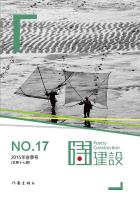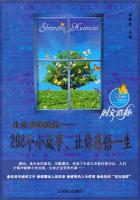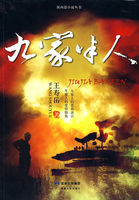A heavy rainstorm came up during the day, and I had concluded that the condition of the streets would be such that my hosts would have to give up the idea of going out to dinner, although the dining-hall I had understood to be quite near. I was much surprised when at the dinner hour the ladies appeared prepared to go out, but without either rubbers or umbrellas.
The mystery was explained when we found ourselves on the street, for a continuous waterproof covering had been let down so as to inclose the sidewalk and turn it into a well lighted and perfectly dry corridor, which was filled with a stream of ladies and gentlemen dressed for dinner. At the comers the entire open space was similarly roofed in. Edith Leete, with whom I walked, seemed much interested in learning what appeared to be entirely new to her, that in the stormy weather the streets of the Boston of my day had been impassable, except to persons protected by umbrellas, boots, and heavy clothing. "Were sidewalk coverings not used at all?" she asked. They were used, I explained, but in a scattered and utterly unsystematic way, being private enterprises.
She said to me that at the present time all the streets were provided against inclement weather in the manner I saw, the apparatus being rolled out of the way when it was unnecessary.
She intimated that it would be considered an extraordinary imbecility to permit the weather to have any effect on the social movements of the people.
Dr. Leete, who was walking ahead, overhearing something of our talk, turned to say that the difference between the age of individualism and that of concert was well characterized by the fact that, in the nineteenth century, when it rained, the people of Boston put up three hundred thousand umbrellas over as many heads, and in the twentieth century they put up one umbrella over all the heads.
As we walked on, Edith said, "The private umbrella is father's favorite figure to illustrate the old way when everybody lived for himself and his family. There is a nineteenth century painting at the Art Gallery representing a crowd of people in the rain, each one holding his umbrella over himself and his wife, and giving his neighbors the drippings, which he claims must have been meant by the artist as a satire on his times."We now entered a large building into which a stream of people was pouring. I could not see the front, owing to the awning, but, if in correspondence with the interior, which was even finer than the store I visited the day before, it would have been magnificent. My companion said that the sculptured group over the entrance was especially admired. Going up a grand staircase we walked some distance along a broad corridor with many doors opening upon it. At one of these, which bore my host's name, we turned in, and I found myself in an elegant dining-room containing a table for four. Windows opened on a courtyard where a fountain played to a great height and music made the air electric.
"You seem at home here," I said, as we seated ourselves at table, and Dr. Leete touched an annunciator.
"This is, in fact, a part of our house, slightly detached from the rest," he replied. "Every family in the ward has a room set apart in this great building for its permanent and exclusive use for a small annual rental. For transient guests and individuals there is accommodation on another floor. If we expect to dine here, we put in our orders the night before, selecting anything in market, according to the daily reports in the papers. The meal is as expensive or as simple as we please, though of course everything is vastly cheaper as well as better than it would be prepared at home. There is actually nothing which our people take more interest in than the perfection of the catering and cooking done for them, and I admit that we are a little vain of the success that has been attained by this branch of the service. Ah, my dear Mr. West, though other aspects of your civilization were more tragical, I can imagine that none could have been more depressing than the poor dinners you had to eat, that is, all of you who had not great wealth.""You would have found none of us disposed to disagree with you on that point," I said.
The waiter, a fine-looking young fellow, wearing a slightly distinctive uniform, now made his appearance. I observed him closely, as it was the first time I had been able to study particularly the bearing of one of the enlisted members of the industrial army. This young man, I knew from what I had been told, must be highly educated, and the equal, socially and in all respects, of those he served. But it was perfectly evident that to neither side was the situation in the slightest degree embarrassing.
Dr. Leete addressed the young man in a tone devoid, of course, as any gentleman's would be, of superciliousness, but at the same time not in any way deprecatory, while the manner of the young man was simply that of a person intent on discharging correctly the task he was engaged in, equally without familiarity or obsequiousness. It was, in fact, the manner of a soldier on duty, but without the military stiffness. As the youth left the room, I said, "I cannot get over my wonder at seeing a young man like that serving so contentedly in a menial position.""What is that word `menial'? I never heard it," said Edith.
"It is obsolete now," remarked her father. "If I understand it rightly, it applied to persons who performed particularly disagreeable and unpleasant tasks for others, and carried with it an implication of contempt. Was it not so, Mr. West?""That is about it," I said. "Personal service, such as waiting on tables, was considered menial, and held in such contempt, in my day, that persons of culture and refinement would suffer hardship before condescending to it.""What a strangely artificial idea," exclaimed Mrs. Leete wonderingly.
"And yet these services had to be rendered," said Edith.















